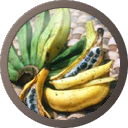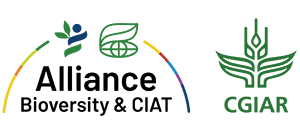Chromosome reciprocal translocations have accompanied subspecies evolution in bananas.
Summary
| Abstract | Chromosome rearrangements and the way they impact genetic differentiation and speciation have long questioned evolutionary biologists. They are also a major concern for breeders because of their bearing on chromosome recombination. Banana is a major crop that derives from inter(sub)specific hybridizations between various once geographically isolated Musa species and subspecies. We sequenced 155 accessions, including banana cultivars and representatives of Musa diversity, and genotyped-by-sequencing 1059 individuals from 11 progenies. We precisely characterized six large reciprocal translocations and showed that they emerged in different (sub)species of M. acuminata - the main contributor to currently cultivated bananas. Most diploid and triploid cultivars analyzed were structurally heterozygous for 1 to 4 M. acuminata translocations highlighting their complex origin. We showed that all translocations induced a recombination reduction of variable intensity and extent depending on the translocations, involving only the breakpoint regions, a chromosome arm or an entire chromosome. The translocated chromosomes were found preferentially transmitted in many cases. We explored and discussed the possible mechanisms involved in this preferential transmission and its impact on translocation colonization. | ||
|---|---|---|---|
| Publication Date | 17 October 2020 | ||
| DOI | 10.1111/tpj.15031 | ||
| Cross Reference |
| ||
| Citation | Martin G, Baurens FC, Hervouet C, Salmon F, Delos JM, Labadie K, Perdereau A, Mournet P, Blois L, Dupouy M, Carreel F, Ricci S, Lemainque A, Yahiaoui N, D'Hont A. Chromosome reciprocal translocations have accompanied subspecies evolution in bananas.. The Plant journal : for cell and molecular biology. 2020 Oct 17. |





